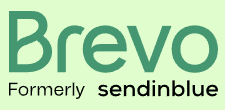Best Email Marketing Software
Best Email Marketing Software
5/4/20238 min read


Email marketing software is a powerful tool for businesses and organizations of all sizes to communicate with their customers, prospects, and subscribers. Here are some reasons why you might need an email marketing software:
Manage your subscriber list: Email marketing software allows you to collect and manage your subscriber list, including adding new subscribers, removing inactive ones, and segmenting your list for targeted campaigns.
Create professional-looking emails: With email marketing software, you can create professional-looking emails with customizable templates that reflect your brand and message.
Automate campaigns: Email marketing software enables you to set up automated campaigns, such as welcome series, abandoned cart reminders, and post-purchase follow-ups, that can save you time and increase engagement.
Track and measure results: Email marketing software provides analytics and reporting tools that allow you to track the success of your campaigns, including open rates, click-through rates, and conversions.
Improve deliverability: Email marketing software can help ensure that your emails are delivered to your subscribers' inboxes, rather than being marked as spam.
Overall, email marketing software can help you build and maintain relationships with your subscribers, drive traffic to your website, increase sales and revenue, and improve the effectiveness of your marketing campaigns. Here is a list of software to start with.
Mailchimp
Constant Contact
Sendinblue (Brevo)
HubSpot
Campaign Monitor
ConvertKit
Aweber
Why do you need an email marketing software
Mailchimp


Mailchimp is a popular cloud-based email marketing software that enables businesses to create and send email campaigns, manage subscriber lists, and track the performance of their campaigns. It was founded in 2001 and is headquartered in Atlanta, Georgia, USA.
Some of the key features of Mailchimp include:
Email templates: Mailchimp offers a wide range of customizable email templates that can be used to create professional-looking newsletters, promotional emails, and more.
List management: Mailchimp allows you to manage your subscriber list by adding new subscribers, removing inactive ones, and segmenting your list based on specific criteria.
Automation: Mailchimp's automation features enable you to set up targeted campaigns, such as welcome emails, abandoned cart reminders, and post-purchase follow-ups.
Reporting and analytics: Mailchimp provides detailed analytics and reporting tools that allow you to track the success of your campaigns, including open rates, click-through rates, and conversions.
Integrations: Mailchimp integrates with a wide range of other marketing and e-commerce platforms, such as Shopify, WordPress, and Salesforce, allowing you to sync your data and streamline your marketing efforts.
Mailchimp offers a variety of pricing plans, including a free plan that allows you to send up to 10,000 emails per month to up to 2,000 subscribers. Paid plans include additional features such as advanced automation, multivariate testing, and priority support.
Constant Contact


Constant Contact is a cloud-based email marketing software that enables businesses to create and send email campaigns, manage subscriber lists, and track the performance of their campaigns. It was founded in 1995 and is headquartered in Waltham, Massachusetts, USA.
Some of the key features of Constant Contact include:
Email templates: Constant Contact offers a variety of customizable email templates that can be used to create professional-looking newsletters, promotional emails, and more.
List management: Constant Contact allows you to manage your subscriber list by adding new subscribers, removing inactive ones, and segmenting your list based on specific criteria.
Automation: Constant Contact's automation features enable you to set up targeted campaigns, such as welcome emails, birthday emails, and post-purchase follow-ups.
Reporting and analytics: Constant Contact provides detailed analytics and reporting tools that allow you to track the success of your campaigns, including open rates, click-through rates, and conversions.
Integrations: Constant Contact integrates with a variety of other marketing and e-commerce platforms, such as Shopify, WordPress, and Facebook, allowing you to sync your data and streamline your marketing efforts.
Constant Contact offers a variety of pricing plans, starting from $20 per month for up to 500 contacts. Paid plans include additional features such as advanced automation, event marketing, and surveys. Constant Contact also offers a 60-day free trial, so you can try it out before committing to a paid plan.
Sendinblue (Brevo)


Brevo, previously known as Sendinblue, is a cloud-based email marketing software that provides businesses with tools to create and send email campaigns, manage subscriber lists, and automate marketing workflows. It was founded in 2012 and is headquartered in Paris, France.
Some of the key features of Sendinblue include:
Email templates: Sendinblue offers a variety of customizable email templates that can be used to create professional-looking newsletters, promotional emails, and transactional emails.
List management: Sendinblue allows you to manage your subscriber list by adding new subscribers, removing inactive ones, and segmenting your list based on specific criteria.
Automation: Sendinblue's automation features enable you to set up targeted campaigns, such as welcome emails, abandoned cart reminders, and post-purchase follow-ups.
Reporting and analytics: Sendinblue provides detailed analytics and reporting tools that allow you to track the success of your campaigns, including open rates, click-through rates, and conversions.
SMS marketing: Sendinblue also offers SMS marketing features that allow you to send personalized text messages to your subscribers.
Integrations: Sendinblue integrates with a variety of other marketing and e-commerce platforms, such as Shopify, WordPress, and Salesforce, allowing you to sync your data and streamline your marketing efforts.
Sendinblue offers a variety of pricing plans, including a free plan that allows you to send up to 300 emails per day. Paid plans include additional features such as advanced automation, landing pages, and Facebook ads.
HubSpot


HubSpot is an all-in-one inbound marketing and sales platform that provides businesses with a suite of tools to attract, engage, and delight customers. It was founded in 2006 and is headquartered in Cambridge, Massachusetts, USA.
Some of the key features of HubSpot include:
Marketing automation: HubSpot offers marketing automation tools that allow you to create and send targeted email campaigns, manage your social media accounts, and optimize your website for search engines.
CRM: HubSpot's CRM (customer relationship management) system helps businesses manage their leads and customers by providing tools for tracking interactions, segmenting leads, and creating customized reports.
Sales tools: HubSpot's sales tools enable businesses to track email opens and clicks, schedule meetings, and manage their sales pipelines.
Customer service tools: HubSpot's customer service tools provide businesses with tools for managing customer inquiries, tickets, and support requests.
Analytics and reporting: HubSpot offers detailed analytics and reporting tools that allow businesses to track the success of their marketing and sales efforts.
Integrations: HubSpot integrates with a variety of other marketing and sales platforms, such as Salesforce, WordPress, and Shopify, allowing businesses to streamline their workflows and sync their data across different systems.
HubSpot offers a variety of pricing plans, including a free plan that includes basic marketing, sales, and CRM tools. Paid plans include additional features such as advanced marketing automation, sales tools, and customer service tools.
Campaign Monitor

Campaign Monitor is an email marketing and automation software that enables businesses to create and send targeted email campaigns to their subscribers. It was founded in 2004 and is headquartered in Nashville, Tennessee, USA.
Some of the key features of Campaign Monitor include:
Email templates: Campaign Monitor offers a library of customizable email templates that businesses can use to create professional-looking newsletters, promotional emails, and transactional emails.
List management: Campaign Monitor allows businesses to manage their subscriber list by adding new subscribers, removing inactive ones, and segmenting their list based on specific criteria.
Automation: Campaign Monitor's automation features allow businesses to create targeted campaigns, such as welcome emails, abandoned cart reminders, and post-purchase follow-ups.
Reporting and analytics: Campaign Monitor provides detailed analytics and reporting tools that allow businesses to track the success of their campaigns, including open rates, click-through rates, and conversions.
Integrations: Campaign Monitor integrates with a variety of other marketing and e-commerce platforms, such as Salesforce, Shopify, and WordPress, allowing businesses to sync their data and streamline their marketing efforts.
Campaign Monitor offers a variety of pricing plans, including a pay-as-you-go plan that allows businesses to purchase email credits for sending emails. Subscription plans include additional features such as advanced automation, email builder, and priority support.
ConvertKit


ConvertKit is an email marketing and automation software designed specifically for creators such as bloggers, podcasters, and YouTubers. It was founded in 2013 and is headquartered in Boise, Idaho, USA.
Some of the key features of ConvertKit include:
Email templates: ConvertKit offers a variety of customizable email templates that can be used to create professional-looking newsletters, promotional emails, and transactional emails.
List management: ConvertKit allows you to manage your subscriber list by adding new subscribers, removing inactive ones, and segmenting your list based on specific criteria.
Automation: ConvertKit's automation features enable you to set up targeted campaigns, such as welcome emails, abandoned cart reminders, and post-purchase follow-ups.
Landing pages and forms: ConvertKit provides tools for creating landing pages and forms to capture new leads and grow your subscriber list.
Integrations: ConvertKit integrates with a variety of other marketing and e-commerce platforms, such as Shopify, WordPress, and Stripe, allowing you to sync your data and streamline your marketing efforts.
Analytics and reporting: ConvertKit provides detailed analytics and reporting tools that allow you to track the success of your campaigns, including open rates, click-through rates, and conversions.
ConvertKit's pricing plans are based on the number of subscribers you have, starting with a free plan that includes basic email marketing features for up to 1,000 subscribers. Paid plans include additional features such as advanced automation, landing pages, and integrations.
Aweber


AWeber is an email marketing and automation software that enables businesses to create and send targeted email campaigns to their subscribers. It was founded in 1998 and is headquartered in Chalfont, Pennsylvania, USA.
Some of the key features of AWeber include:
Email templates: AWeber offers a variety of customizable email templates that businesses can use to create professional-looking newsletters, promotional emails, and transactional emails.
List management: AWeber allows businesses to manage their subscriber list by adding new subscribers, removing inactive ones, and segmenting their list based on specific criteria.
Automation: AWeber's automation features enable businesses to create targeted campaigns, such as welcome emails, abandoned cart reminders, and post-purchase follow-ups.
Landing pages and forms: AWeber provides tools for creating landing pages and forms to capture new leads and grow your subscriber list.
Integrations: AWeber integrates with a variety of other marketing and e-commerce platforms, such as WordPress, Shopify, and PayPal, allowing businesses to sync their data and streamline their marketing efforts.
Analytics and reporting: AWeber provides detailed analytics and reporting tools that allow businesses to track the success of their campaigns, including open rates, click-through rates, and conversions.
AWeber offers a variety of pricing plans, including a free plan that includes basic email marketing features for up to 500 subscribers. Paid plans include additional features such as advanced automation, landing pages, and integrations, and are based on the number of subscribers you have.
When selecting an email marketing software from the above list, it's important to consider your specific business needs and goals. Consider factors such as the size of your subscriber list, the type of email campaigns you want to create, and the level of automation and integrations you require. You should also evaluate the ease of use and customer support offered by each software. It may be helpful to take advantage of free trials or demos to get a feel for the software before committing. By carefully considering these factors, you can choose the email marketing software that best fits your business and can help you achieve your marketing goals.
